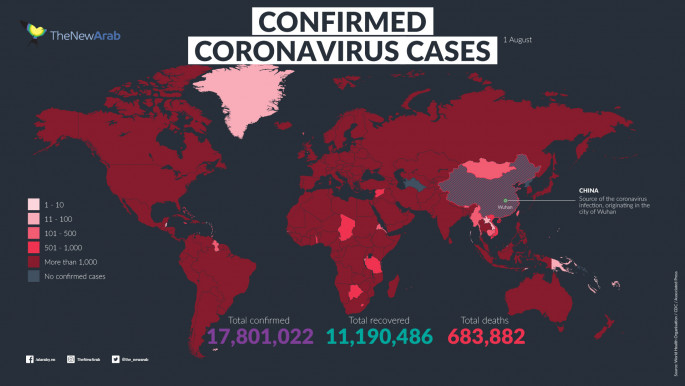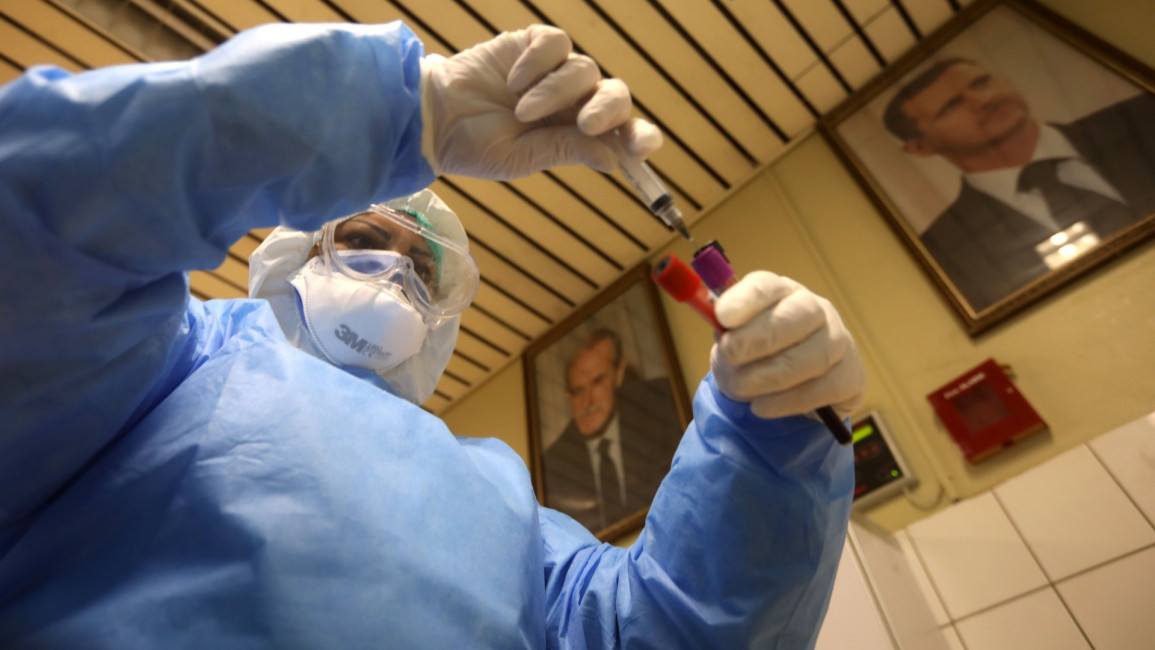There's only one machine to test for coronavirus in war-torn Idlib
There's only one machine to test for coronavirus in war-torn Idlib
Only one machine is available to test for coronavirus in Idlib, where aid organisations fears any outbreak would be catastrophic to the 3 million-strong population.
2 min read
Coronavirus could be disastrous for Idlib [Getty]
In late March, after claiming "immunity", the Syrian regime reported its first case of coronavirus and since then war-torn Idlib has been struggling to prevent its spread.
The last opposition-held region in Syria is preparing for the spread of Covid-19 among its 3 million-strong population with just one machine which can test for the virus.
A doctor operating in the region, called Mohammed Shahim Makki, confirmed that there is only one device outside of regime-held areas capable of running a polymerase chain reaction (PCR) test, Al Jazeera reported.
This could prove disastrous for Idlib, where health infrastructure is in pieces following repeated bombardment by pro-Assad forces.
So far only 120 tests had been carried out by Makki's Epidemiological Surveillance Laboratory on 300 samples.
The results have been negative, however, doctors are concerned that an explosion of cases could prove dangerous for the region, which is filled with refugee camps, displaced people and unusable medical facilities destroyed by war.
In those circumstances, a Covid-19 outbreak could spread quickly.
|
The machine "is not sufficient to serve all these people, so there is pressure on the device. And since it is the only one, strict criteria are being used to select samples", Makki told Reuters news agency.
Detained doctors
The Covid-19 pandemic has compounded fears over overcrowded and unsanitary prisons worldwide but nowhere more so than Syria.
"Syria's detainees are stuck in tight cells, sharing the torture, hunger, pain and diseases," said Mariam Alhallak, chair of the Caesar Families Association.
Alhallak's son was detained for his work as a doctor in 2012 and died under torture.
"Today, we can't even imagine what will happen if Covid-19 spreads in the Syrian regime's detention centres," she said.
Detained medical workers "alongside approximately 100,000 other civilians and peaceful activists illegally detained by the regime, are held in cramped crowded cells without proper food, drinking water, hygiene or medical care", said Dr. Hala Al-Ghawi of Families for Freedom, an organisation representing relatives of detainees.
"If coronavirus spreads containment will be impossible," Ghawi stated.
The head of the Syrian Opposition and the Revolutionary Forces (SMDK) expressed concern last month that the Damascus may leave prisoners to die if they contract coronavirus.
"This plague can spread to prisons. The regime may use this situation for its own interest and get rid of the prisoners [by letting them die]," warned Anas Al-Abde, head of the Syrian Opposition and the Revolutionary Forces (SMDK).
 |

![Trump's warm greeting to Netanyahu contrasted with Kamala Harris's critical reception [Getty]](/sites/default/files/styles/image_330x185/public/2024-07/GettyImages-2162908988.jpg?h=69f2b9d0&itok=OLc5dL88)
![The brutal assault on Khan Younis has killed dozens and displaced thousands more [Getty]](/sites/default/files/styles/image_330x185/public/2024-07/GettyImages-2162526709.jpg?h=d3eda8cf&itok=n5N-o8p5)
![Members of the Algerian delegation threw roses into the Seine [Getty]](/sites/default/files/styles/image_330x185/public/2024-07/GettyImages-2162980872.jpg?h=199d8c1f&itok=h_3o_TOL)